28 May 2023
How Death Outlives War: The Human Costs of “The Other Global Warming”
Bangkok — Over the last 50 years, extreme weather turbo-charged by man-made global warming has caused more than two million deaths and $4.3 trillion in economic losses, according to a World Meteorological Organisation report released on 22 May. A week earlier, on 15 May, the Costs of War project had issued a report estimating that the post-9/11 wars in Afghanistan, Pakistan, Libya, Iraq, Syria, and Yemen had led to an estimated 4.5-4.6 million deaths and counting. Of this, the report said, an estimated 3.6-3.7 million are “indirect deaths” caused by spread of disease and related health problems resulting from the destruction of economies, public services, and the environment. Most of the casualties are children.
So, two million deaths caused over 50 years of global warming vs more than twice that number caused in less than half the time by war and conflict.
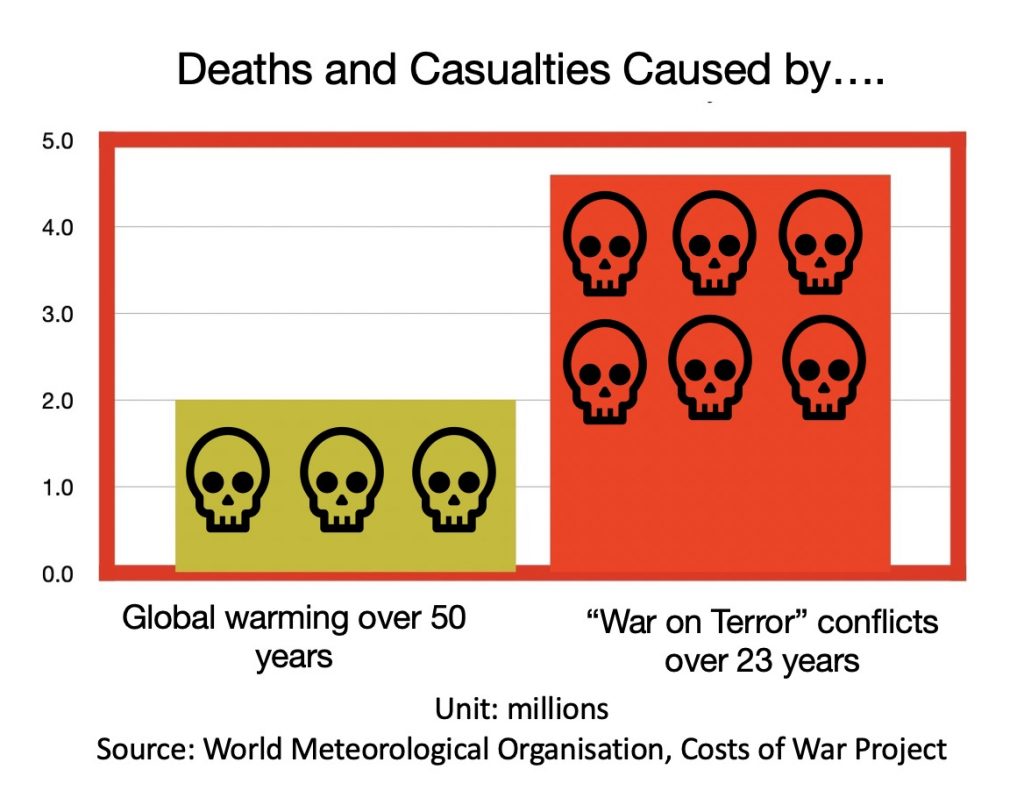
Although both forces of destruction have a far-reaching impact on Travel & Tourism, global warming is clearly attracting the lion’s share of the public discussion and media attention. War and Conflict virtually none. My question to the “visionaries and thought-leaders” now helming Travel & Tourism institutions worldwide: Why?
Housed at Brown University’s Watson Institute for International and Public Affairs, the Costs of War project comprises a team of over 60 scholars, legal experts, human rights practitioners and physicians. All three of its project directors are women. Since 2010, it has worked to facilitate debate about the costs of the post-9/11 wars. Says the project website, “There are many hidden or unacknowledged costs of the United States’ decision to respond to the 9/11 attacks with military force. We aim to foster democratic discussion of these wars by providing the fullest possible account of their human, economic, and political costs, and to foster better informed public policies.”
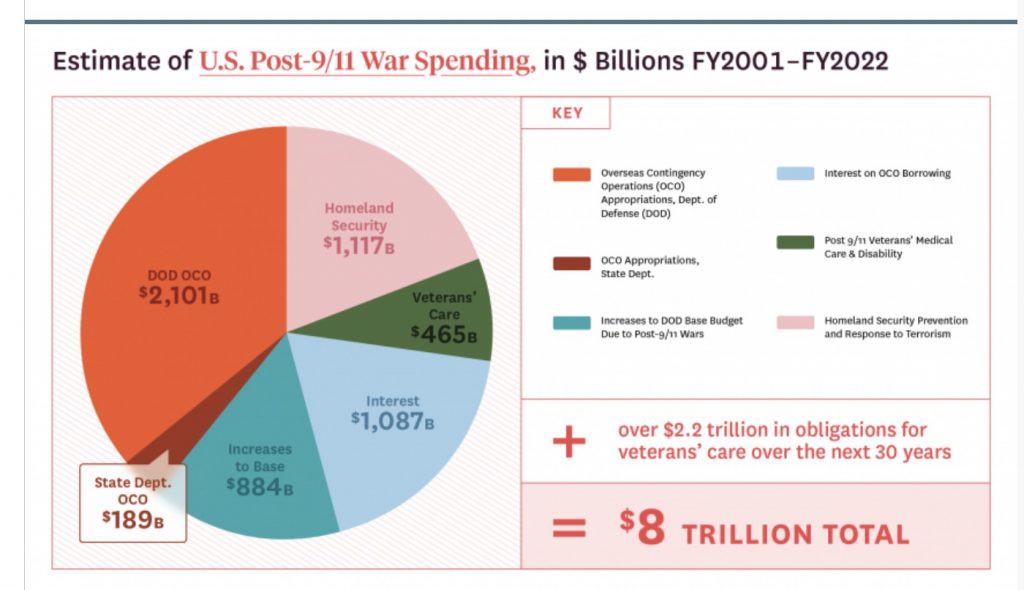
An earlier CoW report in Sept 2021, had estimated the direct and indirect financial costs of the post-9/11 wars at US$8 trillion. The latest report is more sobering. It says, “In laying out how the post-9/11 wars have led to illness and indirect deaths, the report’s goal is to build greater awareness of the fuller human costs of these wars and support calls for the United States and other governments to alleviate the ongoing losses and suffering of millions in current and former war zones. The report highlights many long-term and underacknowledged consequences of war for human health, emphasizing that some groups, particularly women and children, suffer the brunt of these ongoing impacts.”
It points out, “The post-9/11 wars have occurred in countries whose populations are largely Black and brown, and are often waged by countries with histories of white supremacism and Islamophobia. Authoritarian governments in war zones act on their biases against particular ethnic, racial, and/or other local populations.”
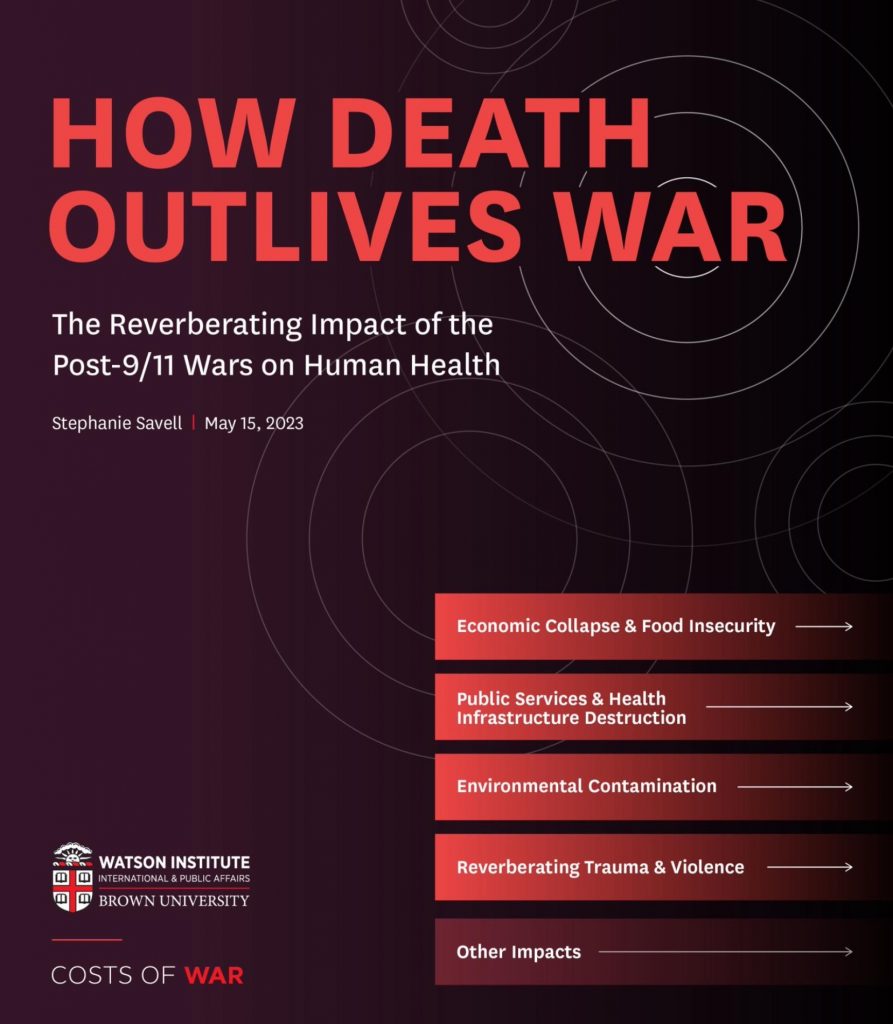
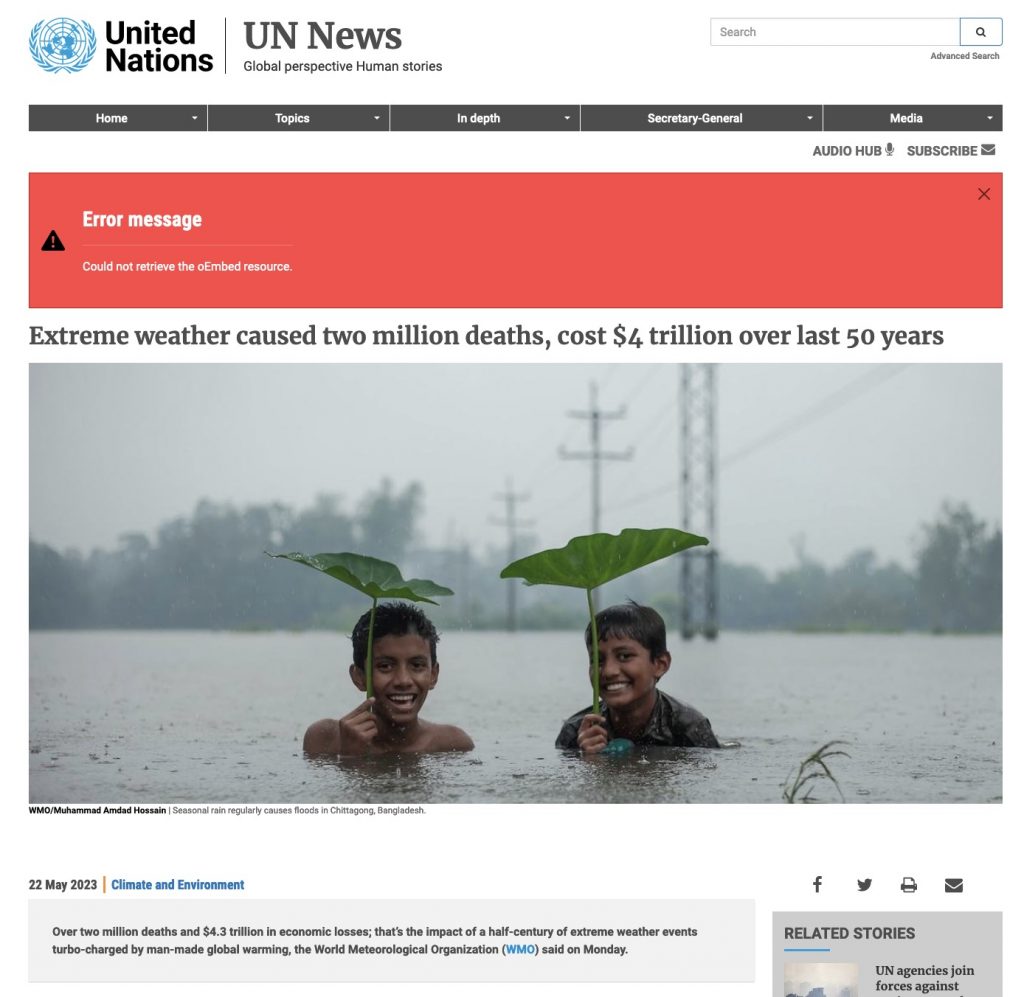
Here are some sample statistics compiled by the researchers of the costs of these wars:
(+) 7.6 million children are suffering from wasting, or acute malnutrition, in Afghanistan, Iraq, Somalia, Syria, and Yemen;
(+) Across the war zones, healthcare infrastructure has been crippled. After the U.S. withdrawal from Afghanistan, all foreign funding for healthcare abruptly stopped, and a month later, more than 80% of Afghanistan’s healthcare facilities were reported to be dysfunctional.
(+) Over half the population in Afghanistan now lives in extreme poverty, on less than $1.90 per day. 95% of Afghans are not getting enough to eat, and in women-headed households that number is 100%.
(+) More than 17.4 million Yemenis are food insecure and 7.3 million facing emergency levels of hunger. Since the beginning of the war, an estimated 85,000 children under five may have died due to starvation.
(+) In the Libyan city of Sirte, a U.S. air campaign conducted around 500 strikes in just five months in 2016, a bombardment more intense than in comparable periods of U.S. air campaigns in Syria and Iraq. A 2018 UN Habitat report noted the destruction of the Sirte central hospital and many primary healthcare facilities.
(+) The post-9/11 wars have caused healthcare workers to flee their countries, notably Iraq. The UN economic sanctions of the 1990s caused many health providers to leave Iraq, and in the five years following the U.S. invasion in 2003, an estimated 18,000 doctors – over half those remaining at the time – fled the country.
(+) In 2011, the U.S. Central Intelligence Agency (CIA) orchestrated a fake door-to-door vaccination campaign in Pakistan to try to locate Osama Bin Laden. As a result, there was a backlash against vaccination campaigns and a resurgence of polio.
(+) In Iraq, anecdotal evidence of cancers, miscarriages, and birth defects are widespread. “In Iraq, we often say that every family includes someone with cancer,” said 43-year-old Yasin Omar, who lives near a massive landfill.
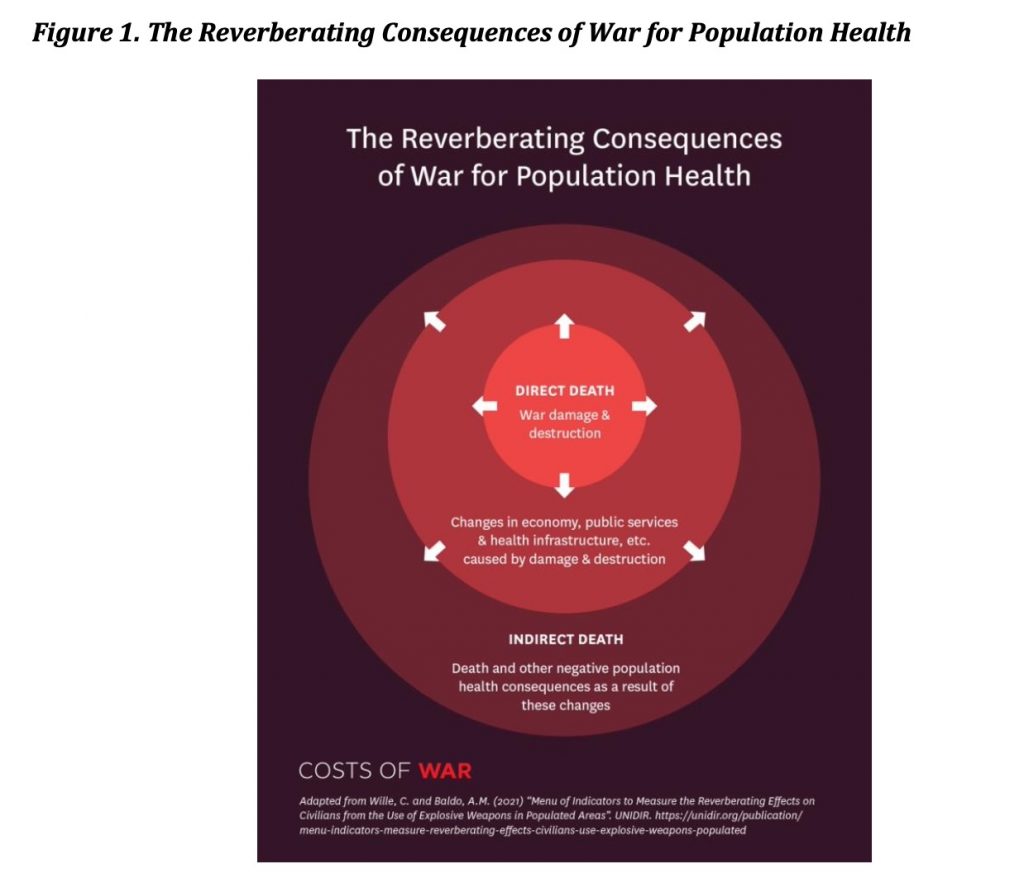
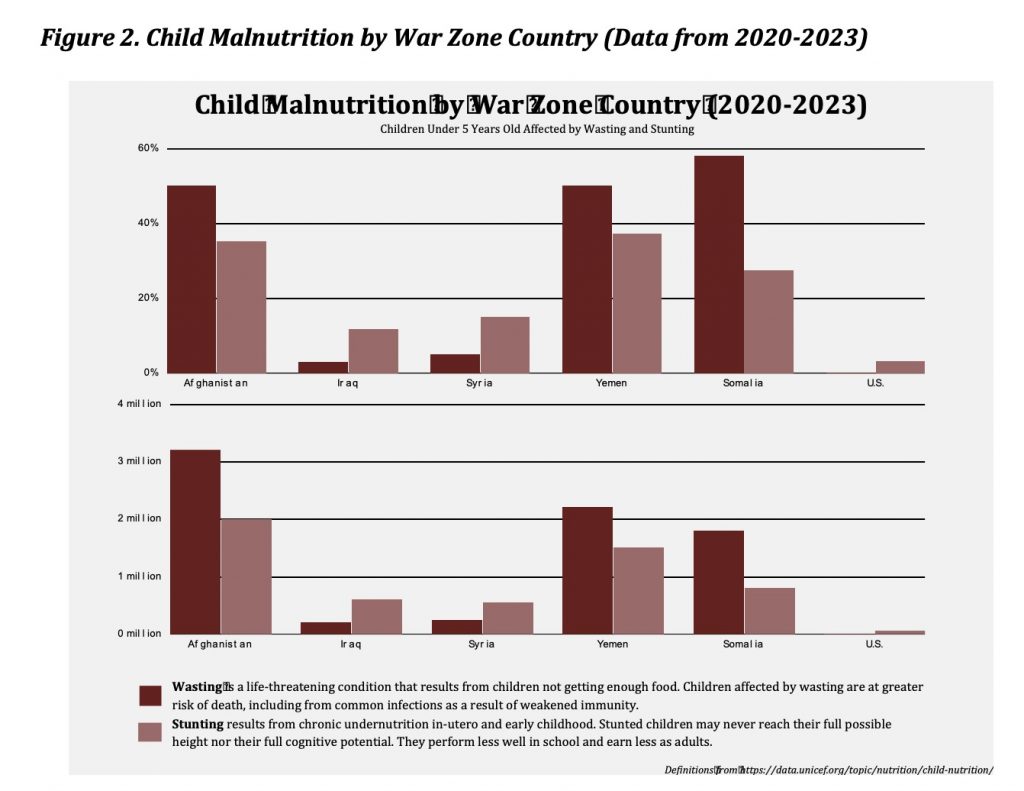
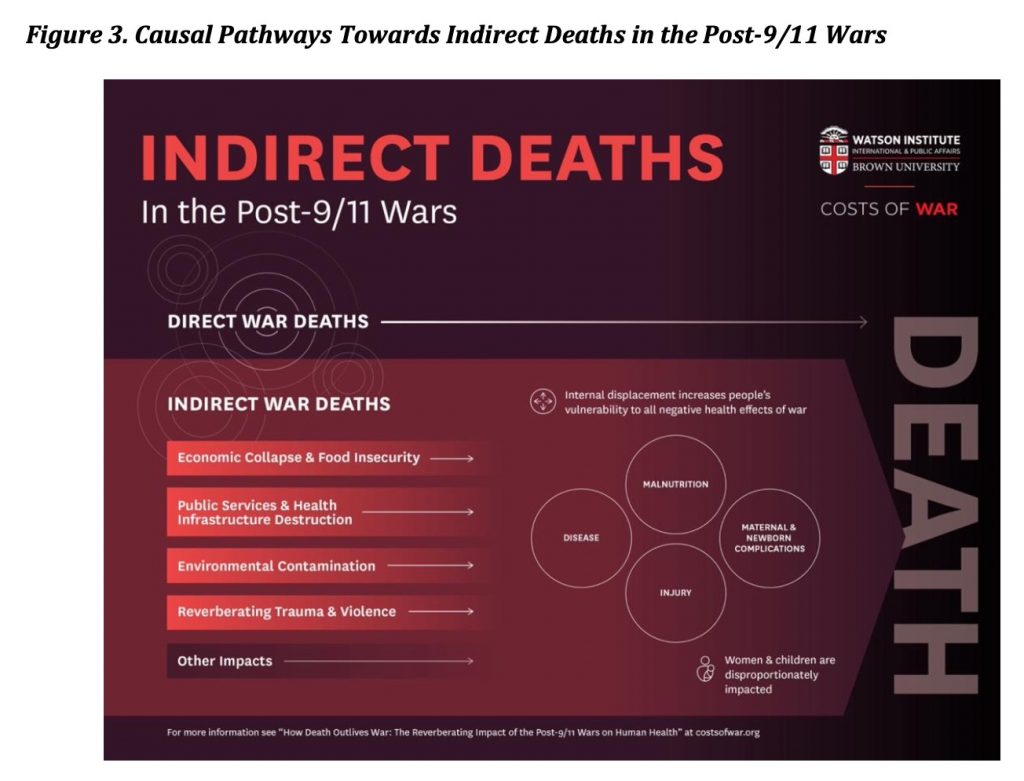
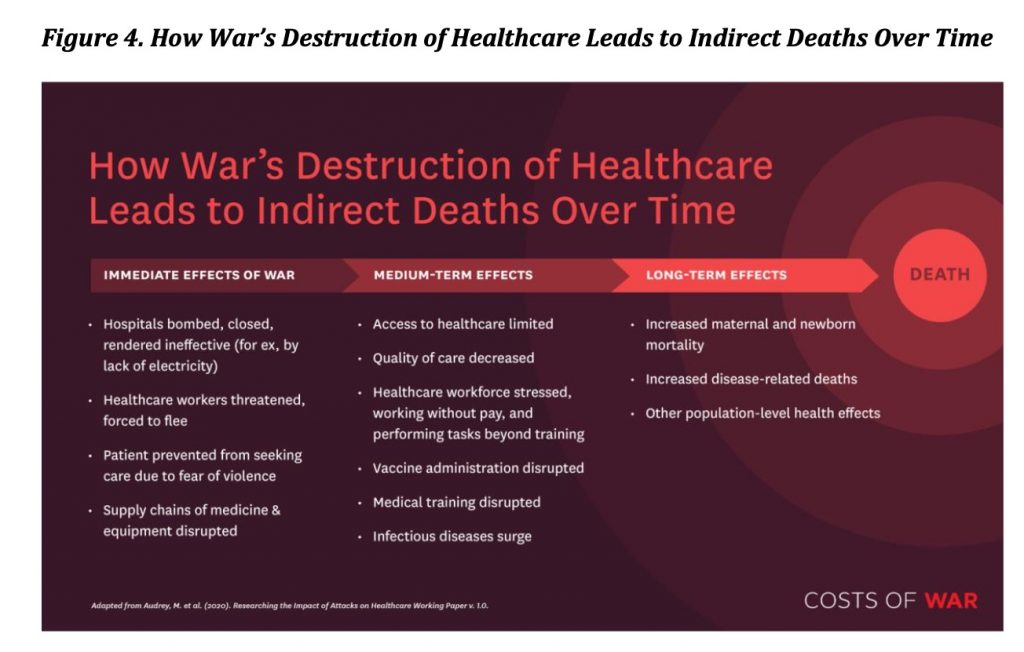
Readers may ask: What does this have to do with Travel & Tourism?
Response: Everything. Wars and Conflict pose the same risk and threat as Climate Change, but their impact is far more immediate. Indeed, these post-9/11 wars did not just involve military operations. They were accompanied by massive disinformation campaigns to demonise the Islamic world, drive gargantuan budget allocations for security agencies and the military-industry complex and rollback human rights and fundamental liberties, many of which such as visa curbs, racial profiling and travel restrictions hit Travel & Tourism at its core. A low-grade Clash of Civilisations, which I have termed “The Other Global Warming”, has been under way ever since.
For Travel & Tourism leaders with the courage and fortitude to recognise the problem, here are a number of questions:
(+) If we can talk ad nauseum about zero-carbon, how about zero-conflict? Does the definition of “sustainability” apply only to the natural environment, or should it be expanded to include the geopolitical environment? Will Travel & Tourism, the so-called Industry of Peace, start giving wars and conflict the same attention as Global Warming? Or will it continue to treat it as being outside its political comfort zones and sweep it under the carpet?
(+) How about inviting speakers from the Costs of War project to keynote at Travel & Tourism events?
(+) The Costs of War research has been ongoing since 2010. Why haven’t other global universities and the so-called Institutes of Peace not picked up on it? What is the United Nations doing about it?
(+) Shouldn’t 4.6 million deaths, mainly women and children, often after long bouts of suffering, also qualify as a Holocaust in its own right? Where are all those who claimed “Never Again”?
(+) Should more museums start seriously exploring the consequences of war and conflict?
(+) Will it motivate more Americans to start questioning the post-9/11 wars and demanding more transparency and accountability? Worldwide, many Americans occupy leadership positions in both the public and private sectors as well as academia, civil society groups, aid agencies, and more. Is it time for them to start challenging the role of their own governments, corporations and institutions in aiding and abetting wars and conflicts?
(+) Why is the mainstream media not giving it the traction it deserves? Why are we not seeing more vivid images of the human suffering caused by the post-9/11 wars? In recent years, following extensive corporate takeovers, global media outlets as well as the social media have become cheerleaders for promoting divisiveness, hate and xenophobia. Are we being both dumbed down and numbed down by the onslaught of social media and technology?
(+) The military-industrial complex profits handsomely from both destruction and reconstruction. Is it time to put it under greater scrutiny? What is the role of the global arms dealers in fomenting conflict and supporting global miitaristic policies to line their own pockets?
(+) Finally, what did those wars actually achieve? What is the value of a human life? Do we in Travel & Tourism even care?
One of the great global geopolitical shifts under way is the decline of the American empire. As no empire lasts forever, this inevitable decline is the result of the U.S.’s self-inflicted loss of its moral high ground. In the aftermath of Watergate, the Vietnam War and the Cold War, the U.S. was hailed as a vanguard of truth, freedom, human rights and democracy. Today, that goodwill is fraying fast. This power shift will impact on Travel & Tourism, for sure. Sweeping it under the carpet, the more politically-safe option, will only delay the inevitable.
The aim of the Costs of War project is to “foster democratic discussion of these wars by providing the fullest possible account of their human, economic, and political costs, and to foster better informed public policies.” As an industry that can definitely be a part of the solution, Travel & Tourism badly needs to adopt that objective as part of its sustainability agenda.
Except that I know it won’t — until it’s too late.
